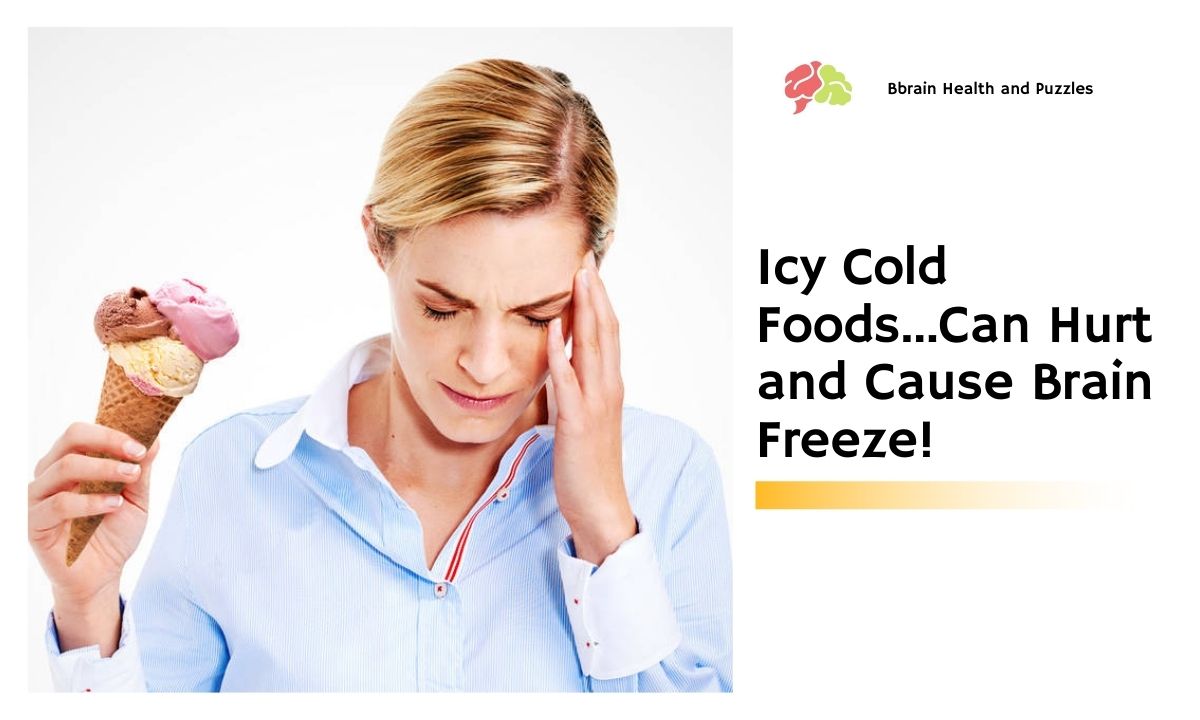Icy Cold Foods…Can Hurt and Cause Brain Freeze!

We all love icy cold foods, especially on a hot summer day, but too much of it too fast can give us a real headache. Who hasn’t had a bout of brain freeze immediately after they throw that blizzard back too fast.
Brain freeze is something that most people have heard of, but which they actually know very little about. Generally, it is the term given to the feeling you get after eating or drinking something extremely cold. It tends to occur when these foods and drinks are consumed fairly quickly and it is definitely not a very nice experience! So just what is it and why does it occur?
What Happens With Icy Cold Foods?
What you may not know is that the pain actually occurs from the cold food and drink touching the roof of the mouth. It is the warming, afterward, of the hard palate that causes the pain rather than the cold as what many people mistakenly think.
So just why does it occur? Well, the body is designed to keep as much heat in as possible, especially on a cold day. So when you breathe through your mouth, for example, the body reduces the blood flow in the mouth in order to preserve heat. The way in which blood flow is reduced is that the diameter of the blood vessels is reduced. This is known as Vasoconstriction and once it has occurred, the blood vessels then return to normal which results in the dilation of the arteries within the palate.
It is the nerves within the palate that translate the dilation as pain and that is why you experience brain freeze. Usually, brain freeze only lasts a few seconds but it is possible that it could last for a minute or two. It is extremely rare for the pain to last any longer than that.
Dealing with Brain Freeze
When you experience it, it can be a really horrible experience. However, there are some things that you can do which are thought to help to relieve the pain. One of these things is to move your tongue to the roof of your mouth.
This helps to warm the palate and similarly, you could also try to drink water that has been left at room temperature. One thing to remember is that the temperature within the mouth does tend to heat up fairly quickly. So by covering your nose and your mouth while breathing, it could really help to speed up the warming process. The cold air that you breathe in will only make the condition worse.
About Brain Freeze
Studies have been carried out to see if there is a link between brain freeze and its sufferers. Not everybody experiences the condition; it is thought that only roughly 30% of the population suffers from brain freeze.
Usually, it is brought on after eating something such as ice cream or drinking a Slurpee drink. There is also a theory that people who suffer from migraines may be more likely to suffer from brain freeze than anybody else.
Slow Down
Brain freeze is that little extra you get when you eat or drink your favorite cold foods. If you have been susceptible to brain freeze in the past, be careful when consuming these goodies, take your time and enjoy them. This way you can thoroughly enjoy that icy treat and avoid that icy headache.



